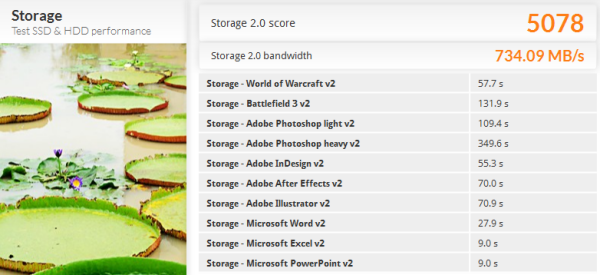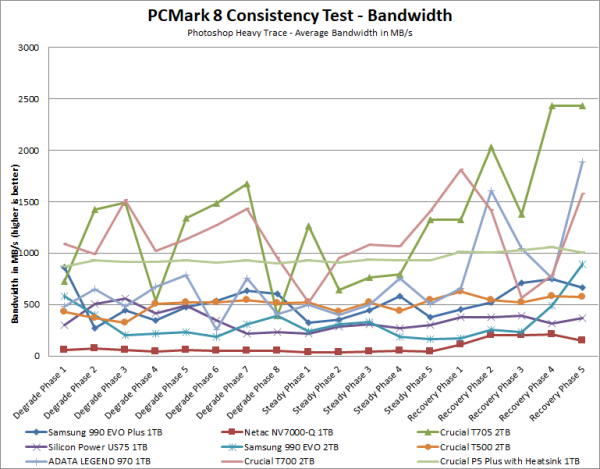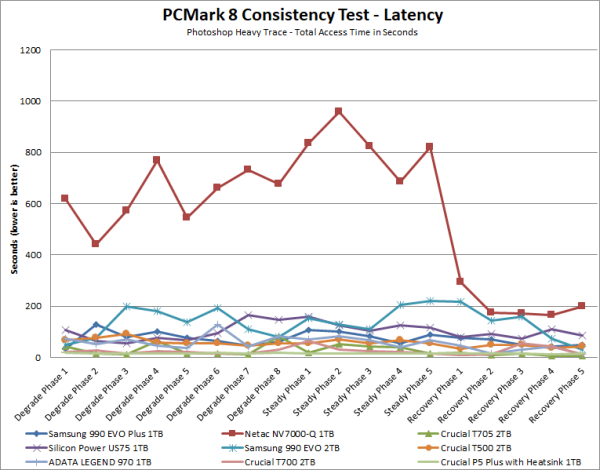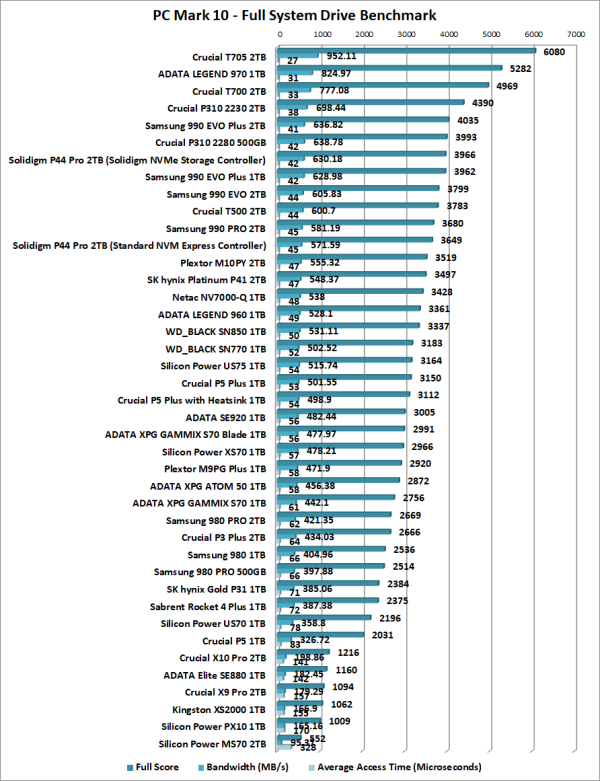PCMark 8 - Storage Test:
PCMark 8 is a complete benchmark for Windows. It includes five benchmark tests, each designed around a specific scenario. The storage benchmark measures drive performance using real-world traces recorded from Adobe Creative Suite, Microsoft Office and a selection of popular games.

PCMark 8 also includes a consistency test which measures the performance consistency and degradation tendency of a storage system. The test reports the performance level at the start, the degraded steady-state and the recovered state as well as the number of iterations required to reach the degraded state and the recovered state. For this test, we are focusing on the Adobe Photoshop (Heavy) trace and will look at both the bandwidth and latency of the drive


The 990 EVO Plus didn't do as well as some of the other drives in this test. During the degradation and steady phases, its bandwidth dropped below 400 MB/s. The 990 EVO Plus' performance did increase somewhat during the last recovery phase. However, with it topping out at only 744 MB/s, it lagged behind the Crucial T705, Samsung 990 EVO and ADATA LEGEND 970.
PCMark 10 - Full System Drive Benchmark:
PCMark 10's Full System Drive Benchmark uses a wide-ranging set of real-world traces from popular applications and common tasks to fully test the performance of the fastest modern drives. This benchmark produces an overall score as a measure of drive performance. Comparing devices is as simple as comparing scores. The tests also measure and report the bandwidth and average access time performance for the drive.

The 990 EVO Plus did surprisingly well in PCMark 10's Full System Drive Benchmark. While not nearly as fast as PCIe 5.0 SSDs like the Crucial T705 and ADATA LEGEND 970, it performed better than both the Crucial T500 and Samsung 990 PRO.

